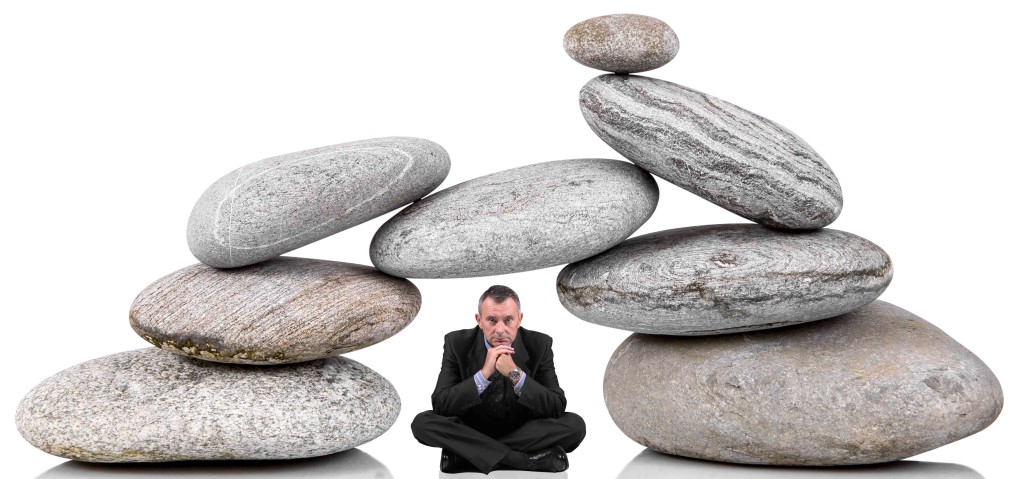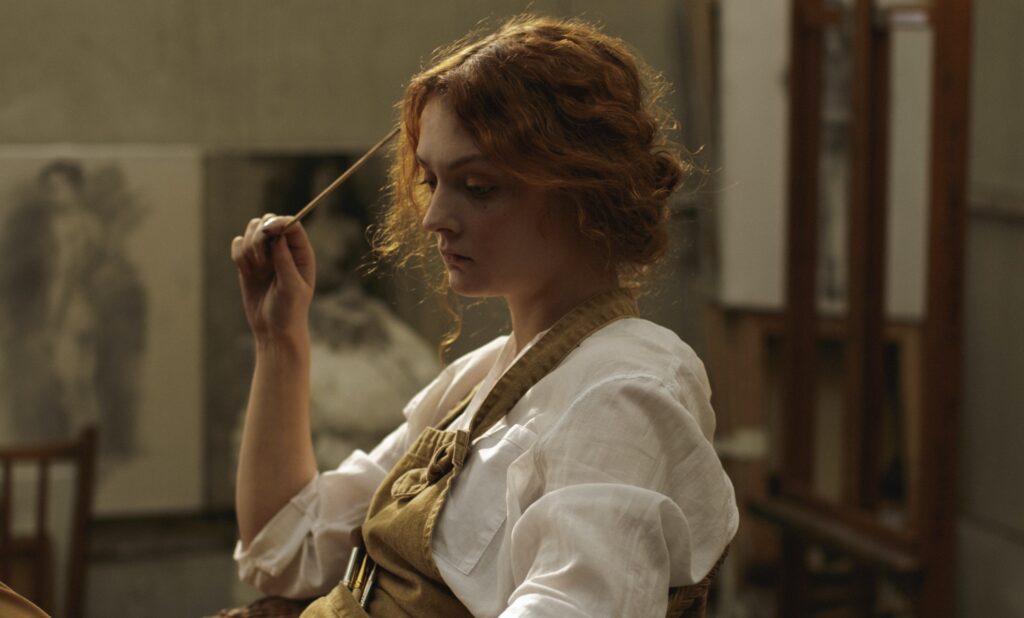The upside of being uncertain & uncomfortable

Human beings generally don’t like discomfort of any kind: physical, mental, emotional, spiritual. We stop exercising (if we even start) when we get tired or our muscles start to complain. We exhaust our ‘bandwidth’ when confronted with ideas that stretch our mind or learn new skills that feel overwhelming. In doing so, we may walk away in the midst of chaos, not realising that chaos is a prelude to a breakthrough. We may find emotions illogical and hard to control so we don’t let them out to begin with or we find other people’s emotions very confronting. Or when our spiritual practice brings up questions we can’t answer or philosophies that seem to be at odds with our own experience of the world, we may disconnect or walk away. Yet, discomfort is a state that we are designed neurologically to experience. It’s role in our evolution is to signal that it’s time for the next stage of our human development. However, most of us don’t interpret it that way. We see it as a signal that we’re not good enough. We’ve seen the images about the comfort zone that tell us magic happens outside it. We know, if we’ve allowed ourselves to experience it, the exhilaration of pushing through fear and redefining what we’re capable of. We know we need to ‘dare greatly’ to quote Brene Brown. It might sound simple … it certainly isn’t easy. I believed for years that I was up for any adventure in my life. I learned that was true … and I needed 3 days notice! I wanted to be ready for whatever was coming at me. That is a typical desire for someone who feels he/she needs to be hypervigilant to protect themselves. Uncertainty is a natural part of our lives. There is very little out there that we can control. All we can control is our response to it. Yet so many of us persist, albeit unconsciously, in seeking to control the actual situations that create a feeling of uncertainty within us. Let’s bring it closer to home. We can’t change the poor behaviour of others wherever it may occur. We can’t make our manager behave more respectfully, appreciate our qualities and contribution. We can’t make our clients recognise the value we bring. We can’t force others to see the world the way we do. We can’t even impose control over our internal uncertainty. We might think we succeed because we’ve distanced ourselves from the feeling of uncertainty through our behaviours. However, the cause is still there, lurking beneath the surface. 1. Engage in a retrospective: If you look back on your life – however short or long – you will see that you have experienced uncertainty many times before … and survived! Recognising this may well calm the fear associated with uncertainty. 2. See the positive: We can recognise that uncertainty means we’re in new territory and understand that means we have an opportunity to grow. In doing so, we can convert the fear associated with uncertainty into the excitement of a new journey. 3. Listen to the message: We can pay attention to the uncertainty and what lies beneath to provide us with the next chunk in our development – what we need to eliminate, transform or take on 4. Address the low self-esteem / Imposter Syndrome: While we can’t change the fact that we live with uncertainty, we can personally reduce the unnecessary uncertainty that comes from feeling we’re not good enough by addressing the distorted belief. 5. Reframe our discomfort into a larger context: We can convert the energy associated with the uncertainty into something more constructive such as fulfilling our purpose – our big why. Everything in our lives has a duality. When we look, we can see a positive and a limiting aspect to any situation. We can and do benefit from both. We can hold ourselves in limitation which may protect us from failure and/or other peoples’ judgements. Or we may become positively infatuated with any situation. Only by balancing both aspects can we neutralise our response to the situation and come to a place of acceptance.
Is it time to get out of your own way?

I get in my own way. There I’ve said it. I’ve unintentionally undermined my own opportunities through self-doubt, procrastination, distraction. active sabotage and various other techniques I’ve perfected over the years. It’s a strange expression isn’t it. How can I get in my own way? I’m right here in this body. I can’t be in two places at once! That’s true. What’s also true is that we have amazingly powerful minds. I can see a situation play out : it feels real. I’m there in a flash. I don’t even go through the stages any more. I skip straight to the proverbial last page. The scenario is usually fear based. I’d better not do XYZ because I know how it turns out. While other people may push through in spite of the fear, my response – and that of a majority of women and some men – is then to pull back. I have, in the past, totally tripped myself up. I allowed an imagined situation to play out with disastrous consequences and then I acted as if it was real. I stepped back from opportunities I logically knew I could handle. I believed what others told me, giving their opinions greater validity than my own intuition. I allowed others to define who I am. At various stages in my life, I took everything personally as though all the challenges in the universe were put there just for me to deal with while others got a much easier ride (or so I thought). I said yes to situations I really didn’t want to get involved with and then resented the other person for asking. I kept my ‘little Spanish girl’ (the opposite to English and stitched up) firmly locked up, rarely allowing her to come out and tell it like it is, stamp her feet in temper, dance like crazy and live a passionate life. I could go on … and I think you get the picture. I lived a much smaller life than I could have if I had dared more; if I had got out of my own way. My prevailing view through so much of my life was – and I say it consciously – I wasn’t good enough. I didn’t measure up to other people and to their positively distorted views of me. In my darkest moments, I would rail at the universe demanding to know when I would be enough. The answer wasn’t out there. I finally realised I was creating everything: the good, the bad and the ugly. I created my own reality. And I was interpreting the world through a pair of glasses that eliminated all evidence that I actually was good enough. Each of us has an amazing and unique combination of talents, skills, capabilities and qualities. No-one else can do what we do in the way we do it. And when we take responsibility for the whole of our reality, we can operate – consciously at first – from the space of who we are, not the material outcomes we want from life. Getting out of our own way is a journey to ourselves; a journey of acceptance for all the gifts and the imperfections we bring. Yes, the journey can be challenging. Realising we’ve been undermining our own opportunities, hopes and dreams can feel extremely uncomfortable. Doing the work that helps us identify the blueprint we have for life and rewiring it can feel liberating. So, do you sabotage yourself? How do you get in your own way? And what has it cost you? Do you remember – or have you ever heard of – the movie Network? Peter Finch played the role of a washed up anchor on a fictional tv station, UBS, during the depression. From the movie, there are two lines that became an anthem for people feeling helpless and frustrated with the way things were. It’s the catch cry for change. “I’m mad as hell and I’m not going to take this any more!” If you’re tired of sabotaging yourself and living a smaller life than you could if you believed in yourself and felt you are good enough; if you have a dream you’re not getting any closer to, maybe you are mad enough to make the change? The path to getting out of your own way involves recognising you are enough, there is enough and you have enough to do what you need and want to in order to experience life at its fullest. The journey includes reclaiming and valuing you, recognising and challenging your patterned thinking and beliefs where they undermine you, rewiring your neurology to develop greater resilience and optimism, taking full responsibility for the world you have created and can create, even if you don’t fully understand what that means yet. The journey involves a commitment to you and participation in the greatest change programme there is – changing your mind about yourself! If you’re mad as hell that you’ve denied who you are, that you’ve held yourself back and finally you’ve had enough, it may be time to get out of your own way. Visit my website and my February/March public programme Skirting Leadership or Open to Possibilities.
Creativity brings out the Imposter Syndrome in us!

It hides in the shadow as we go through life, until it steps out and accosts us. I’m talking about the Imposter Syndrome – latent until triggered. Unknowingly, I’ve experienced Imposter Syndrome – the feeling of not being good enough or even feeling like a fake and fraud – most of my life. In my twenties, I created leather clothing, stained glass artifacts and photographic art on commission and to sell at Crafts fairs. I loved the creative process. I did not love the sales side. Even with commissioned work, I felt sheer panic when the person who had commissioned the piece saw it for the first time. What if they hated it?! That feeling was nothing compared to the sheer nakedness I felt when people walked by my table at the Arts Fair, totally avoiding eye contact, picking up and putting down items that I’d spent hours on and talking about them as if I wasn’t there. I learned the incredible discomfort of creativity. Was my work good enough? Could they see flaws? Had they seen someone else’s work that was so much better? Could I have done a much better job? Did they appreciate my style or consider me an amateur? Not terribly useful thoughts and as I learned over the intervening years, very typical for someone in a creative endeavour. I was experiencing what I have now come to know as the Imposter Syndrome. What activates the Imposter Syndrome is an external situation that triggers a feeling of vulnerability and personal uncertainty around our worth, our capabilities, our successes and how we compare with others. Nowhere is that uncertainty and vulnerability more present than when we put ourselves out there in some creative endeavour. It may be the job we do, such as writing, creating art, writing code as a programmer. It could be the tasks we’re involved with such as brainstorming, curating or writing for social media, participating in or leading change programmes, presenting or managing others. Whatever the situation, we are exposed by putting ourselves or our creative ideas out there for others to gauge their worth. And that’s when it strikes … that feeling of being a fake and fraud; the vulnerability that accompanies the fear of being judged and rejected. Looking back on my career in advertising, I now understand the creative team so much better. What I mistook for bolshie behaviour and arrogance may well have been their defensiveness as a relatively inexperienced account service person trampled all over their egos. Creativity is so much broader than sitting at a canvas or typewriter. It is the generation of original ideas or the use of imagination to create something; it’s about being inventive. For example, in management meetings, the creativity is around taking a project forward or addressing problems that threaten to derail it. Sadly, this isn’t always the case. A recent HBR Blog, “Politeness has a cost”, expresses concern that managers, particularly younger managers, often do not contribute in group settings. They don’t disagree or speak out for fear of embarrassing a colleague or appearing not to be a team player. I have another theory: they recognise the importance of meetings to position themselves for career opportunities and don’t want to jeopardise those opportunities by expressing a view that may be contrary to consensus, leaving them open for judgement and rejection. We can choose to play small when we experience feelings of not being good enough. Alternatively, we can move through that feeling, recognising it as a key part of the creative process. While the outcome is a product of our thoughts, insights, and industry, it needs to have a life of its own once created. We gave it birth and we now need to let it fly to whatever heights it can. After all, without creativity, we live in a drab world.
